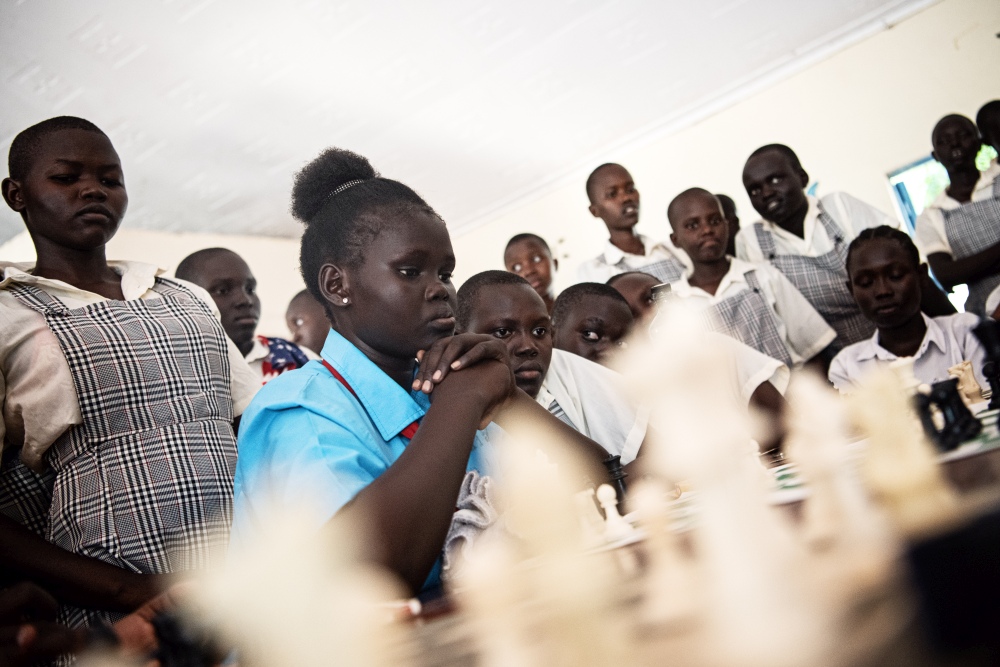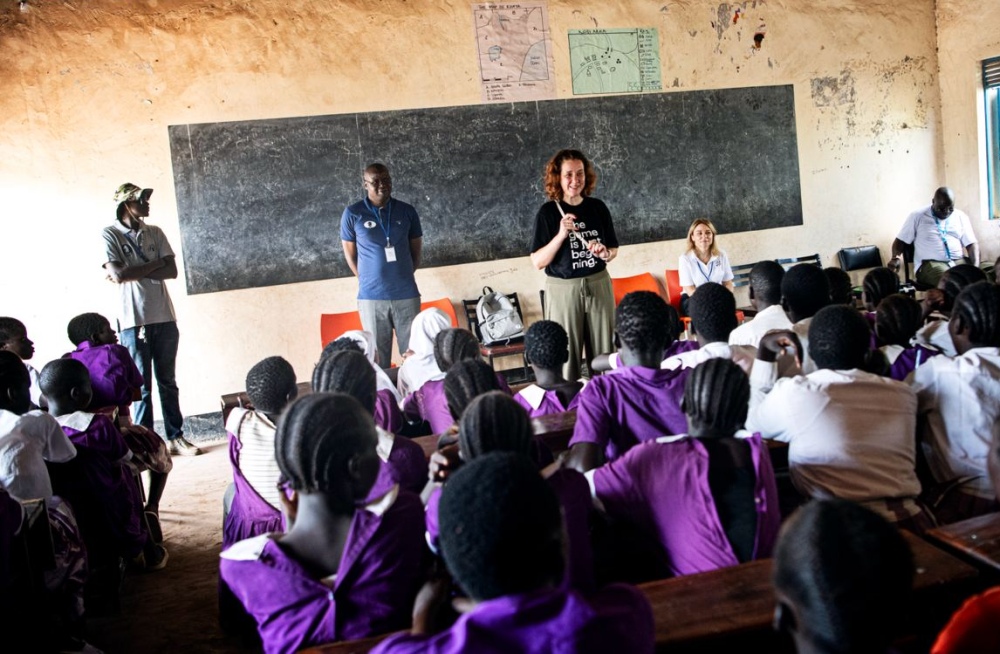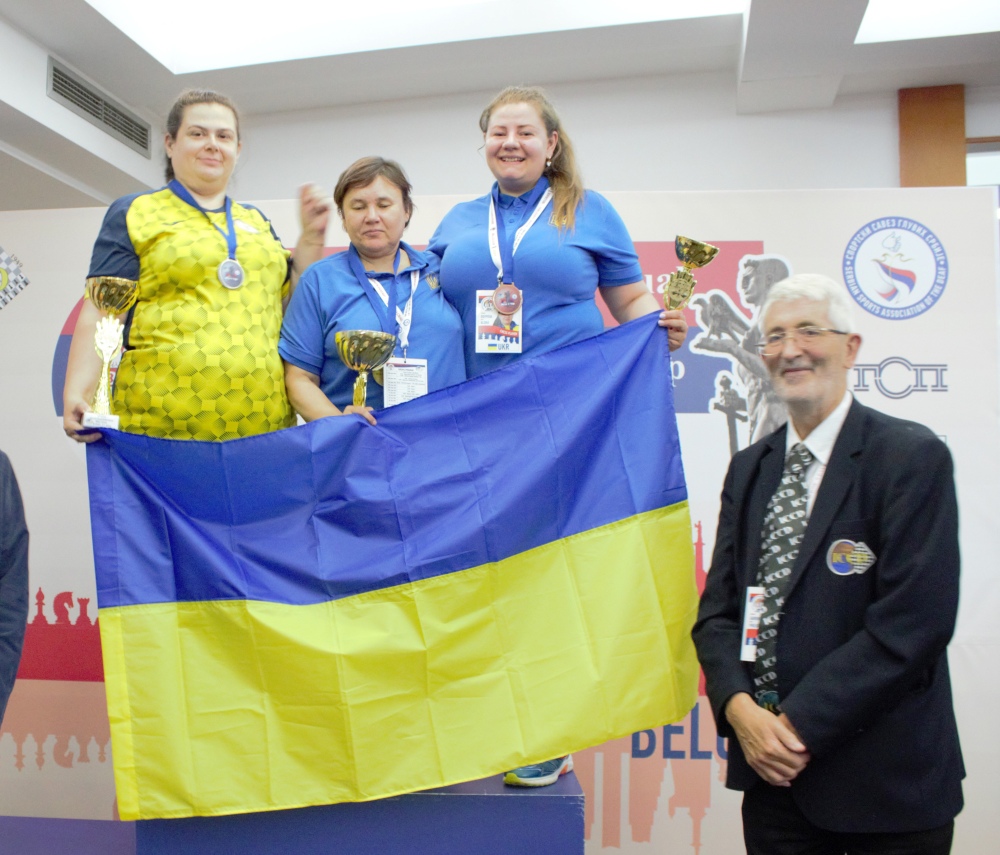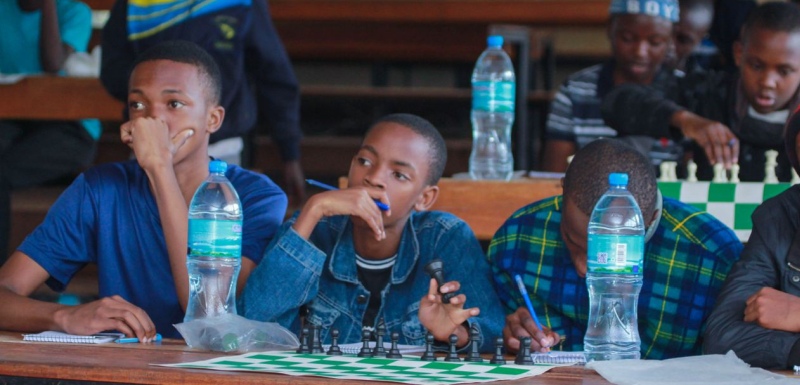
In an exceptional step towards empowerment and inclusivity, the selection for the Refugee Chess Team – which will for the first time be competing at a Chess Olympiad - has concluded at the Kakuma refugee camp in Kenya
This historic milestone marks a new chapter in FIDE's initiative for refugees "Chess for Protection" launched in 2021.

The selection process consisted of tournaments held at schools and community centers in Kakuma. The events were organized by a team of FIDE officials, including licensed arbiter David Lekopien, Chess Kenya President Benard Wanjala, and representatives from the United Nations High Commissioner for Refugees (UNHCR).
The project aims to send people a message of hope and opportunity, regardless of their background and life circumstances. The initiative underscores FIDE's longstanding commitment to promoting inclusivity and unity through chess.

During their stay in Kakuma, the Deputy Chair of the Managing Board of FIDE, Dana Reizniece-Ozola and the Chair of the FIDE Commission on Women's Chess, Anastasia Sorokina, gave lectures and simuls and met with students to assess their chess skills and understand their circumstances.

They also paid an official visit to Dr. Salome M.Beacco, CBS Principal Secretary of the State Department for Correctional Services, to discuss the implementation of another FIDE social project – Chess for Prisons – and discuss prospects of including the Kenyan penitentiary facilities in the project. The delegation of officials from Kenya was invited to the upcoming Chess for Freedom Conference, scheduled to take place from June 19 to 21 in Pune, India. FIDE also hopes the country will join the 4th Intercontinental Championship among Prisoners in October 2024.

A Triumph of Talent and Perseverance
The goal of the selection process was to find 10 promising players – five for the Women's team and five for the Open – who would represent the team of Refugees at the forthcoming Olympiad in Budapest (Hungary) in September.
The participants came from community chess clubs, primary and secondary schools, and the Girls Club.
Empowering Through Chess
Caught in the spirals of conflict, poverty, and rejection, those without a home or legal status face many challenges just to achieve basic human rights such as freedom and the right to develop and think freely.
The Chess for Protection – jointly executed by FIDE, UNHCR, LWF, Chess Kenya, and the Kakuma Chess Club – is aiming to make a change for the refugee community. So far, in this project in Kenya, over 2,000 children from 36 schools have taken part and have received training and advice applicable to other aspects of life.

The Girls Club has been particularly impactful. Launched in August 2021, the club aims to help refugee girls learn chess, acquire new life skills, and find a way to express themselves, doing so in a safe environment. The club operates in three girls' boarding schools and has seen significant participation, with 250 schoolgirls attending chess classes twice a week.
The program not only teaches chess but also incorporates lessons on the social benefits of the game, helping the students to build skills which are useful both on and off the chess board.
Looking Ahead to the Olympiad
The selected team members will now move to the next stage – working with a trainer who will prepare them not just for a grand event such as the Chess Olympiad but also help them prepare themselves for the trip and the experiences they will have. The trainer will be selected by the Social Commission of FIDE.
The UNHCR and the Kenyan government will support the team in getting the necessary documentation processes, ensuring a smooth journey to the Olympiad. FIDE will cover all travel costs for the two teams.
In the words of Dana Reizniece-Ozola: "We are happy that nearly three years since the launch of the project, we have the first team of refugees that will take part in the Olympiad. We want to show the world that chess is an excellent tool to empower people and lead to change, and this story is a confirmation of that!"
Photos: Stev Bonhage





